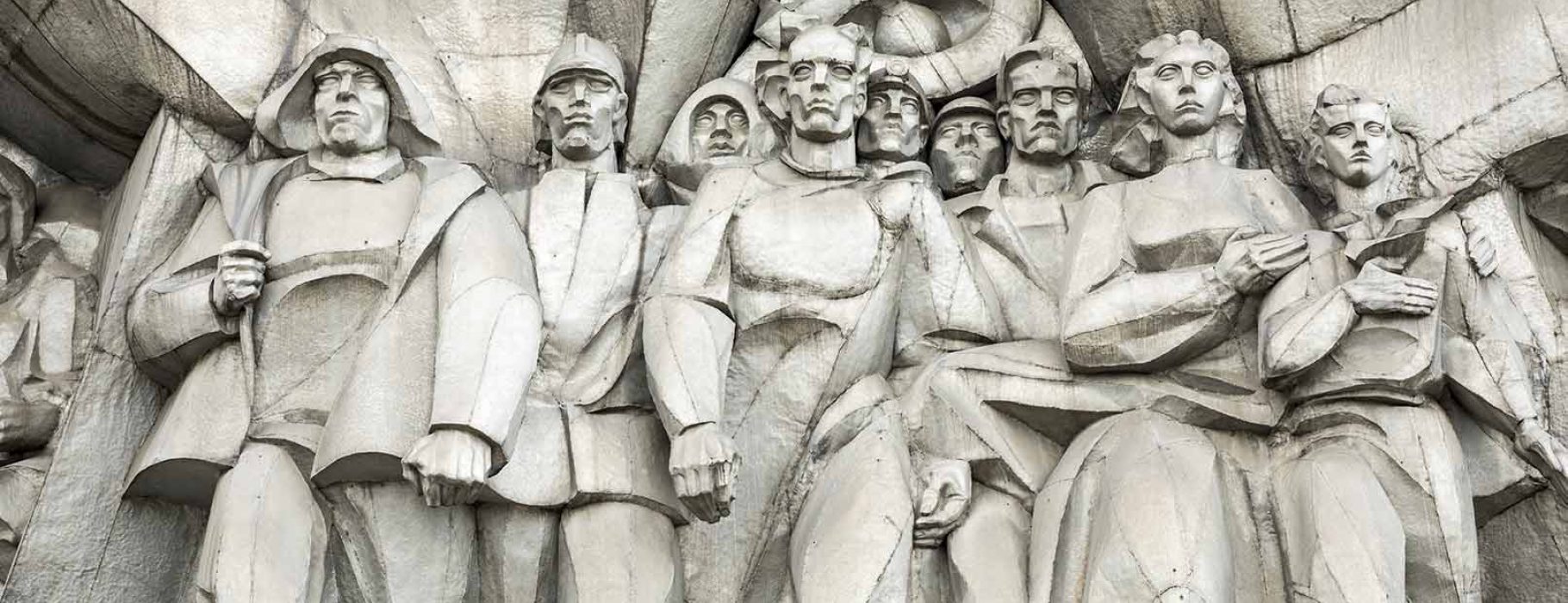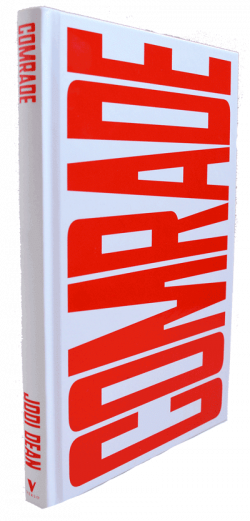Is it possible to think, write, and practice a communism that is not fully determined by the debates and divisions of the twentieth century, one that learns from socialist and communist struggles—victories as well as defeats—and extends the struggle for communism into the twenty-first century?
On the one hand, the answer is obviously, “Yes.” Across the globe, socialist and communist struggle continues, on practical as well as theoretical terrains. Revolutionary parties, electoral parties, mass parties, and smaller parties continue to organize and press the claims of working people. Theorists and strategists in popular, academic, and sectarian publications recognize the urgency of the present, the imperative of replacing oppressive, extractive, imperialist capitalism with an emancipatory egalitarian system of production, distribution, and administration based on meeting human and non-human need. In large part due to the work of militants and historians, moreover, the very fiction of one twentieth century, one Cold War story with clearly understood debates and divisions, has been thrown out, enabling current struggles to find new sources of inspiration and continuity in the past. As Slavoj Zizek likes to point out, the future is fixed but the past is open.
On the other hand, myriad practices mitigate against any embrace of the communist experience. Hegemonic anticommunism appears in surprising places – the incessant demand that some names be accompanied by qualification (there can be no non-ironic mention of Stalin); that some actions be denounced in advance (Soviet invasions of Hungary and the Czech Republic); that we rebrand and use different names entirely (and become, for example, progressive anti-capitalists active in social movements for real democracy). While it is no surprise that dominant institutions demand constant affirmation of the superiority of liberal democracy, the reflex to unquestioning preference for debate, suspicion of discipline, and excoriation of any hints of centralized or “top down” authority testifies to the dogmatism from below of much of the contemporary left.
Most of us recognize that these reflexes are context dependent. Persistent reopening of every decision to debate prevents us from getting things done. Being able to count on people to show up and do what they’ve agreed to do matters. And, in the context of the COVID-19 pandemic where the absence of a centralized authority capable of addressing the crisis in the US is leading to needless suffering and death, that there is a role for “top down” authority is more apparent than ever. I note with some relief that the governor of New York has said the state will step in to take ventilators from private hospitals and put them to use in overwhelmed and under-supplied public ones.
My last three books contribute to the reinvigoration of communist theory. Each one doubles down on a wager in the preceding one. The Communist Horizon (Verso 2012) argues that communism is the horizon of our politics, the dividing line that tells us where we stand. Crowds and Party (Verso 2016) defends the party as the political form necessary for the struggle for communism. Comrade: An Essay on Political Belonging (Verso 2019) presents the comrade as the relation between party members — those on the same political side — that gives them the capacity to endure, fight, and win. The goal in these books is providing a compelling alternative to the visions of radical democracy, anarchism, and issue and identity based activism that make up a kind of inchoate left common sense.
Comrade presents a conceptual analysis of the comrade as a form of political belonging. It investigates the term as it is used in the socialist and communist tradition as a mode of address, carrier of expectations, and figure of political relation between those on the same side of a political struggle. The book does not investigate varieties of political motivation or the differing ways that people become radicalized. Its interest is in the capacities generated as effects of voluntary and combined self-instrumentalization in the service of a common political goal, more specifically, of the goal of overturning racial patriarchal capitalism and building a society where production is based on meeting human needs. To this end, it highlights discipline, joy, courage, and enthusiasm as the comrade’s primary features.
My concern in the book is with comrade as a form, as a generic political figure. Attention to the generic dimension of political belonging that arises from comrade as a form gives us insight into an egalitarian and utopian dimension of socialist and communist struggle irreducible to programmatic content. The etymology of the word “comrade” out of the Latin word for room or vault, “camera” is illustrative here: a vault is a repeatable structure establishing a space of supportive cover; a room establishes a division between those within and without. A room is indifferent to those within it; it covers, contains, holds them no matter who they are.
The mode of analysis in Comrade is the same as it is in Crowds and Party. There, I present the party as a solidary political association that cuts across workplace, sector, region, and nation. The communist party is a form for asserting division, that is to say, for emphasizing the fundamental antagonism of class conflict and working for the victory of the proletarianized people. I ground this account of the party in the crowd. Masses of people in the streets exert a force; they disrupt conventional order and open a gap of possibility. But as a crowd they don’t have a politics; they present an opportunity for a politics. Any mass disruptive crowd brings together heterogeneous elements – different political groups, people just hanging out, those who like disruption, police, etc. In the wake of a crowd event, there is a struggle over its meaning: who were they and what did they want? The communist party is the party that sees class struggle, that is to say, the emancipatory force of the divided people, in disruptive crowd events.
There’s more: drawing from Elias Canetti’s Crowds and Power, I emphasize the “egalitarian discharge” as the “substance” of the crowd, as that dimension of the crowd experience that ruptures individuality and provides the crowd with its dynamics, its energy, its attractiveness, its ability to open up a gap in the everyday. The communist party amplifies this specific dimension of the crowd, its egalitarianism, enabling it to continue after the crowds go home in and as the fight for justice.
The generic comrade is correlative to the inchoate crowd. Neither is determined by specific contents but rather by their forms, forms that have an egalitarian dimension irreducible to bourgeois conceptions of equivalence of the sort excoriated by Marx. Furthermore, in both the crowd and the comrade the egalitarian dimension derives from overcoming of individuality. In a crowd, this overcoming is momentary. In the comrade, it is a permanent feature, intrinsic to what it is to be a comrade.
This approach to the communist party acknowledges the differentiation between class and party. Because capitalists exercise power not simply in the factory and the market but also through the state, that is, through institutions that generate legitimacy and operate coercively, the struggle of the proletariaized produces political as well as economic forms of struggle, parties as well as unions. Both are sites as well as instruments of struggle, organizations for building solidarity and unity precisely because neither flow naturally or immediately from people’s position in production. Marx and Engels linked socialism not to class identity but to class struggle, to movement, and to the capacity to force this movement in a political direction that results in the seizure and smashing of the state, in the transformation of production, and in the abolition of classes. My theorization retains continuity with Marxist versions of the party as the vanguard of the working class while nonetheless recognizing the need to reconceive what this means in contexts of diminished class consciousness and skepticism toward vanguards. Thus, I conceive the communist party as a faithful response to the movement of the proletarianized.


